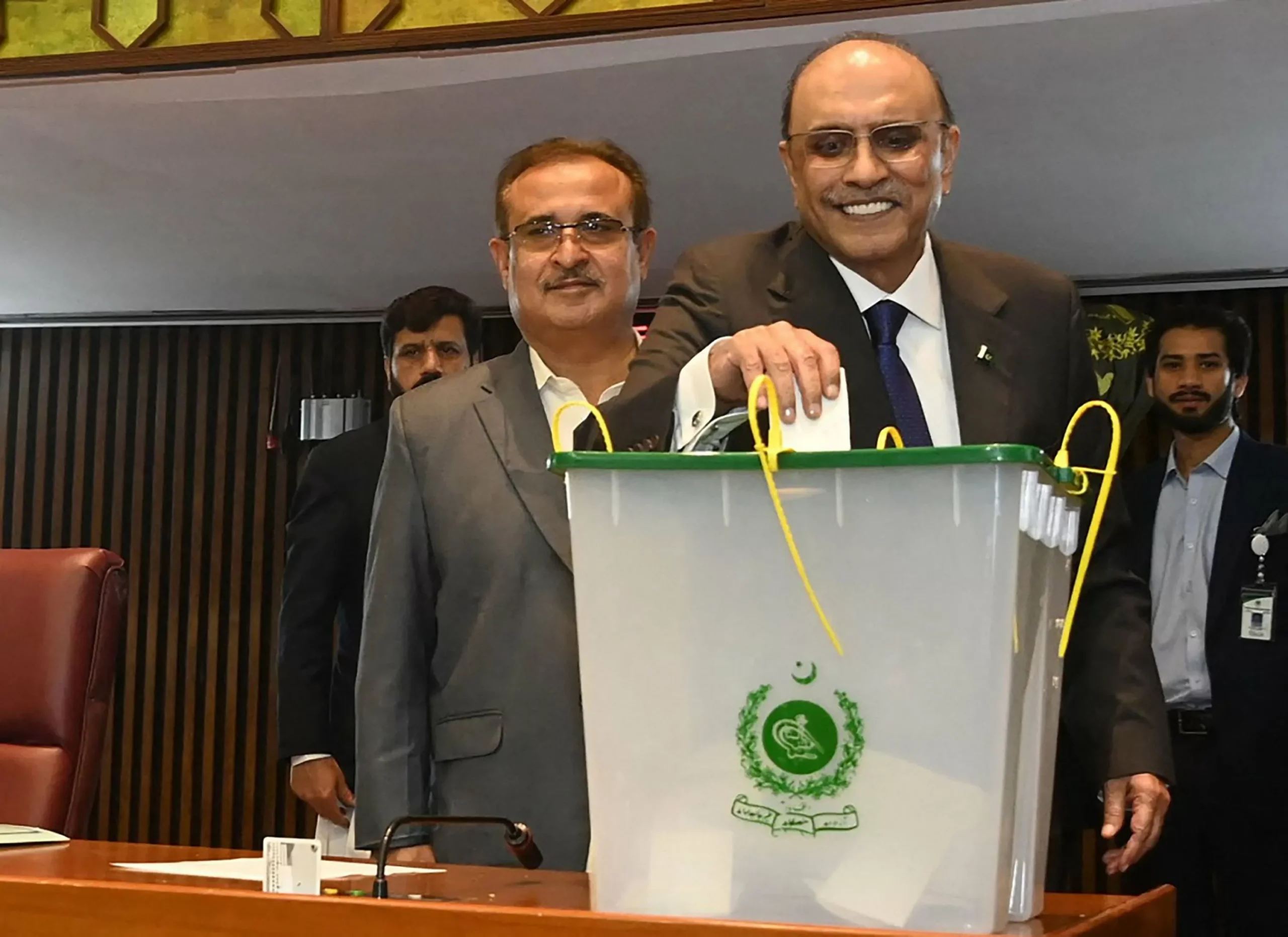Legislators in Pakistan have made a historic decision by electing Asif Ali Zardari as the country’s new president. The widower of the late former Prime Minister Benazir Bhutto, Zardari secured an overwhelming 411 votes in the presidential election held on Saturday.
This momentous occasion marks a new chapter in Pakistan’s political landscape, as Zardari takes on the role of the country’s 13th president. His election has been met with widespread support and optimism, as he brings with him a wealth of experience and a strong vision for the future of Pakistan.
Zardari’s journey to the presidency has been a long and challenging one. He has faced numerous obstacles and setbacks, including the tragic assassination of his wife, Benazir Bhutto, in 2007. Despite these challenges, Zardari has remained resilient and determined to continue his wife’s legacy of democracy and progress in Pakistan.
His election as president is a testament to his unwavering commitment to serving the people of Pakistan and his dedication to upholding the principles of democracy. Zardari has been a prominent figure in Pakistani politics for decades, serving as the co-chairman of the Pakistan People’s Party (PPP) alongside his wife, and later as the country’s 11th president from 2008 to 2013.
During his time as president, Zardari implemented various policies and initiatives aimed at promoting economic growth, social welfare, and strengthening Pakistan’s relations with other countries. He also played a crucial role in the restoration of the country’s judiciary, which had been suspended during the military rule.
Zardari’s leadership has been widely praised for his efforts in promoting peace and stability in the region. He has been a strong advocate for regional cooperation and has worked towards resolving conflicts with neighboring countries through dialogue and diplomacy.
His election as president has been met with enthusiasm and hope from the people of Pakistan. Many see him as a symbol of unity and progress, and believe that he will lead the country towards a brighter future. Zardari’s vision for Pakistan is one of a prosperous and peaceful nation, where all citizens have equal opportunities and rights.
As the new president, Zardari has promised to prioritize the needs of the people and work towards addressing the challenges facing the country. He has vowed to tackle issues such as poverty, unemployment, and terrorism, and to promote social justice and equality for all.
Zardari’s election has also been hailed as a victory for democracy in Pakistan. It is a clear indication that the country’s democratic institutions are functioning effectively and that the will of the people is being respected. This is a significant step towards strengthening democracy in Pakistan and ensuring that the voices of the people are heard.
The international community has also welcomed Zardari’s election as president, with many leaders congratulating him and expressing their support for his leadership. This is a testament to Zardari’s reputation as a respected and influential figure on the global stage.
In his acceptance speech, Zardari expressed his gratitude to the legislators for electing him as the new president and pledged to work tirelessly for the betterment of Pakistan. He also paid tribute to his late wife, Benazir Bhutto, and promised to continue her legacy of democracy and progress.
As Pakistan enters a new era with Zardari at the helm, there is a sense of optimism and hope for the future. His election as president has brought a renewed sense of unity and purpose to the country, and it is a clear indication that the people of Pakistan are ready for a new chapter of progress and prosperity.
In conclusion, the election of Asif Ali Zardari as Pakistan’s new president is a momentous occasion that has been met with widespread support and optimism. His experience, leadership, and vision for the country make him the ideal candidate to lead Pakistan towards a brighter future. Let us all join hands and support our new president in his efforts to build a stronger, more prosperous, and peaceful Pakistan.




![Complete BritRail Pass Guide [Types, How to Use It, Pros + Cons]](https://inside-news.uk/wp-content/uploads/2025/06/00221EB4-BCA2-4DBB-6CD4-83DBC37D71FA-120x86.webp)












